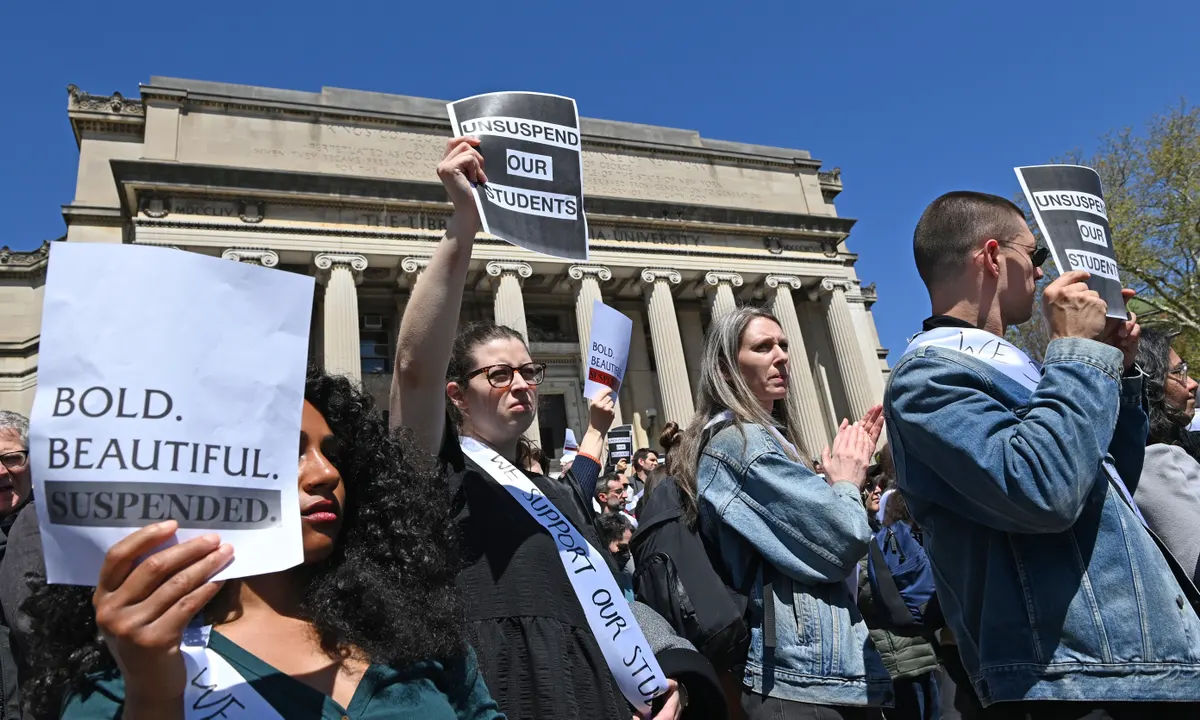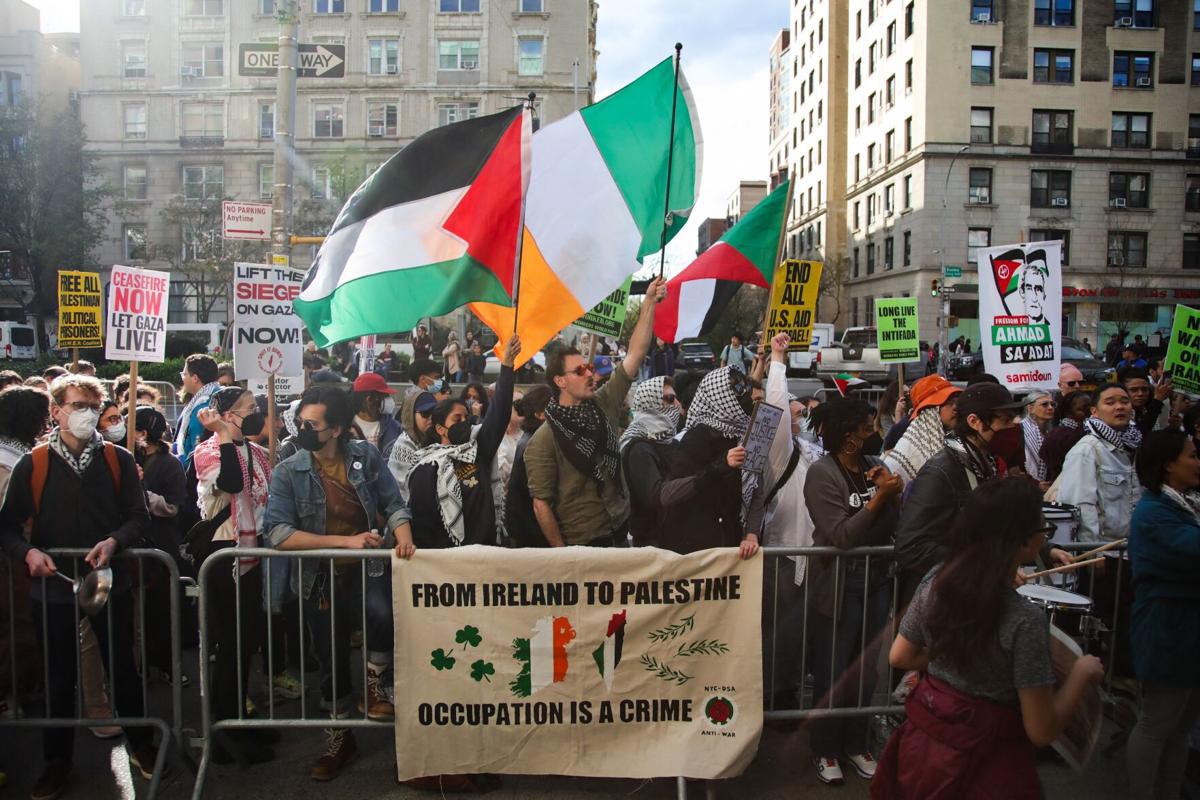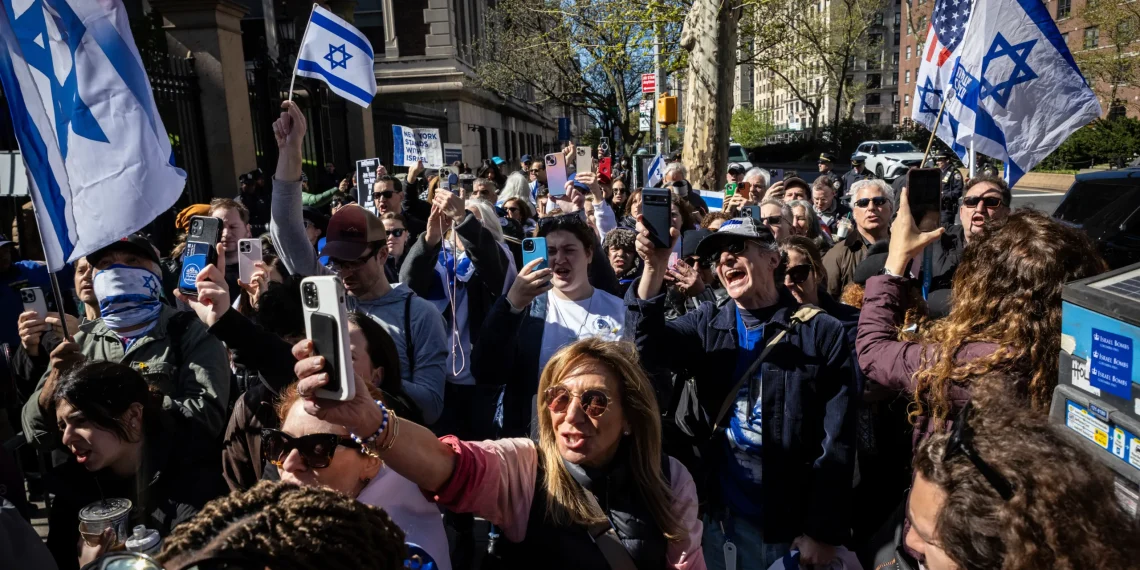Protests erupted at Yale University in Connecticut and New York University in Manhattan amid the ongoing Israeli-Palestinian conflict.
Demonstrators demanded divestment from military weapons manufacturers and clashed with police. At Yale, over 45 protesters were arrested for blocking traffic and advocating for divestment.
In New York, officers dispersed crowds defying warnings to vacate a plaza, resulting in multiple arrests. Columbia University canceled in-person classes after protesters established tent encampments, prompting police intervention.

The demonstrations reflect nationwide campus responses to the conflict’s escalation. Following a deadly raid by Hamas militants and Israel’s subsequent actions in Gaza, tensions heightened across universities.
Columbia’s president cited the need to “deescalate the rancor” as classes shifted online to address protests and encampments.
Criticism emerged over Columbia’s handling of the situation. The university faced backlash for involving police to dismantle encampments and arresting over 100 students for trespassing.
Despite claims of protecting Jewish students, major donor Robert Kraft threatened to withdraw funding, alleging inadequate response to anti-Semitic incidents.
Reported confrontations between pro-Palestinian and pro-Israeli groups at Columbia prompted police attention, though no physical harm was confirmed.

Student protesters, including Jewish individuals, defended criticisms, emphasizing their solidarity with various marginalized groups. They underscored the encampment’s purpose, rejecting accusations of bigotry.
The demonstrations signify broader societal divides and political stances surrounding the Israeli-Palestinian conflict.
President Biden condemned anti-Semitic acts but faced criticism for his administration’s support of Israel. Amid calls for dialogue, tensions persist as universities face complex political landscapes.


















